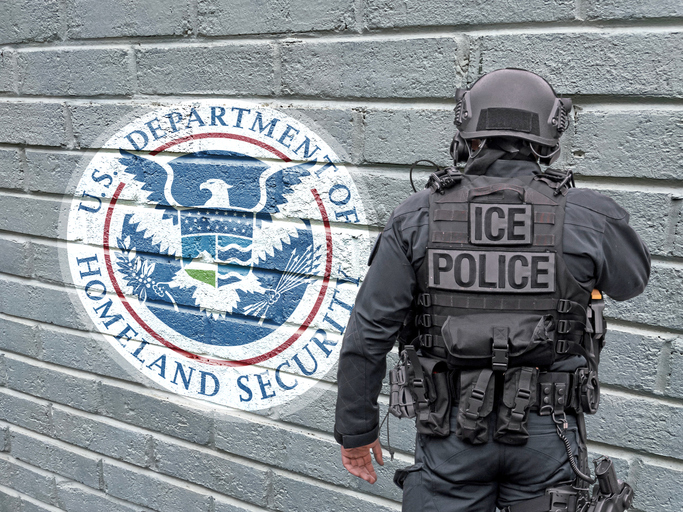For decades, immigrants have played a crucial role in the U.S. military, serving in combat zones, taking on high-risk assignments, and pledging loyalty to a country that is not yet officially their own. Many of these service members believed their honorable duty would guarantee a pathway to citizenship. However, as new immigration enforcement policies take shape in 2025, non-citizen veterans are finding themselves in an unsettling position: at risk of detention or deportation despite their years of service.
A Growing Wave of Concern
Recent reports highlight a rise in immigration enforcement actions that include veterans who are permanent residents but not naturalized citizens. Some of these veterans, many with minor past offenses or unresolved legal issues, have been detained by Immigration and Customs Enforcement (ICE). While deportations of veterans remain relatively rare, the fear within this community has grown significantly since stricter immigration policies were announced earlier this year.
Many non-citizen veterans express frustration and a sense of betrayal. They note that during their time in service, the government promised pathways to citizenship. Yet in practice, bureaucratic delays, incomplete paperwork, or misunderstandings often left veterans in legal limbo after completing their duty. For some, decades have passed without resolution, and now they face the very real prospect of removal from the country they risked their lives to defend.
The Policy Backdrop
Immigrant veterans have long faced a complicated relationship with U.S. immigration law. Under the Immigration and Nationality Act, military service can create eligibility for expedited naturalization. However, policy implementation has been inconsistent. In past administrations, programs intended to support service members’ naturalization were underfunded or suspended, leaving thousands without citizenship status.
The latest push for tougher immigration enforcement has revived old concerns. Veterans with past convictions—even nonviolent ones—are often flagged for removal proceedings. Critics argue that these cases fail to account for post-traumatic stress disorder (PTSD), substance use linked to service-related trauma, or rehabilitation efforts made since discharge.
Bipartisan Efforts to Address the Issue
The growing pressure has sparked rare bipartisan interest in Congress. Lawmakers from both parties have introduced proposals aimed at protecting veterans from deportation and creating clearer pathways to citizenship. One proposed bill would require the Department of Homeland Security (DHS) to review every deportation case involving a veteran and mandate coordination with the Department of Veterans Affairs to assess potential hardship.
Advocates are also pushing for legislation to retroactively grant citizenship to veterans who were honorably discharged but fell through administrative cracks. Organizations such as the American Civil Liberties Union (ACLU), the American Legion, and Veterans for Peace have rallied behind these reforms, arguing that no one who has worn the uniform should live in fear of deportation.
Human Stories Behind the Headlines
The statistics only tell part of the story. Non-citizen veterans include men and women who have fought in Iraq, Afghanistan, and earlier conflicts. Some have spent most of their lives in the U.S. and built families here, with children who are U.S. citizens. For them, deportation would mean separation from loved ones and the loss of access to vital VA healthcare services.
One veteran, who served two tours in Afghanistan, recently told reporters that he lives with “a bag packed by the door,” in case ICE agents arrive. Others report skipping medical appointments or avoiding public events for fear of exposure. These stories highlight the mental toll that uncertain immigration status takes on individuals already coping with the invisible scars of war.
What Comes Next
The coming months could prove pivotal. As October 2025 begins, advocacy groups are ramping up campaigns, urging lawmakers to pass protective legislation before more veterans are detained or deported. Meanwhile, immigration authorities continue to insist that enforcement priorities are focused on individuals with criminal backgrounds.
Still, the tension remains: should a veteran’s military service outweigh past mistakes or incomplete paperwork? Supporters of reform argue that the answer is yes. They stress that the country owes a unique debt to those who served, and that deporting veterans undermines both moral responsibility and national security by discouraging future immigrant enlistment.
Final Thoughts
The debate over non-citizen veterans and deportation embodies a larger conflict in U.S. policy: how to balance immigration enforcement with honoring military service. At stake are not just laws and procedures, but the lives of men and women who believed their sacrifice would secure their place in the nation they defended.
Whether Congress acts swiftly or delays once more, the anxiety faced by immigrant veterans is real—and growing. Their stories serve as a reminder that patriotism does not always guarantee protection, and that citizenship, for some who served, remains an unfulfilled promise.




